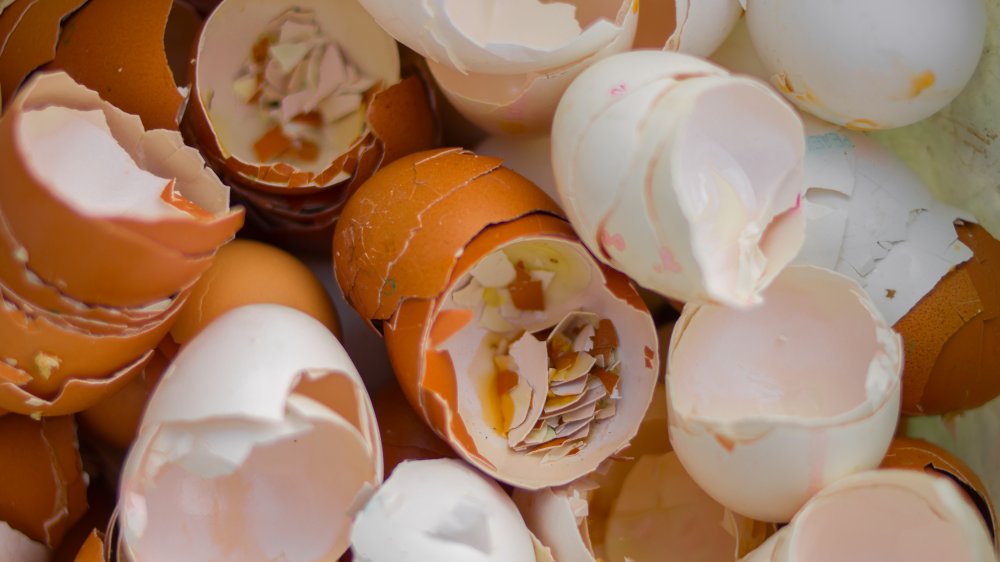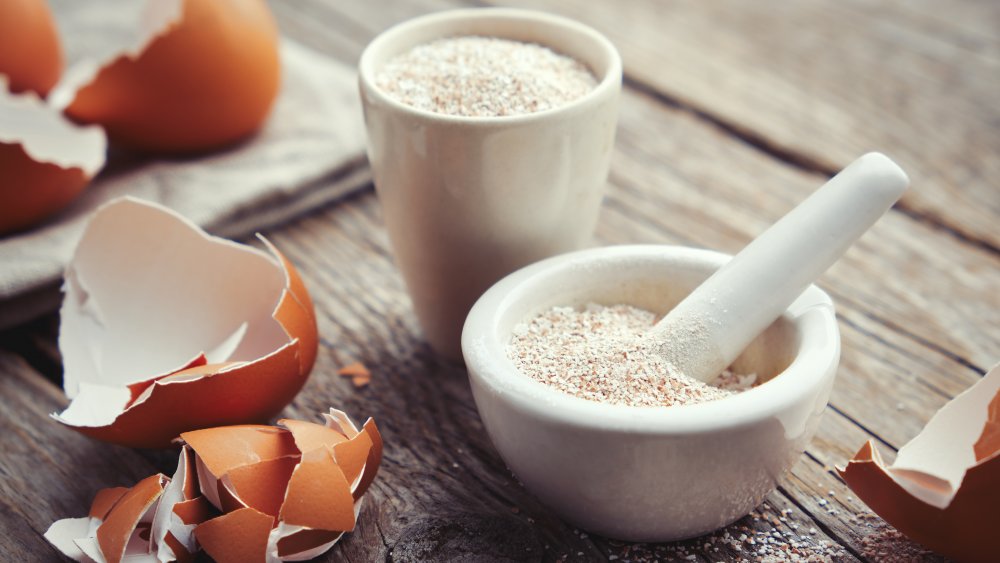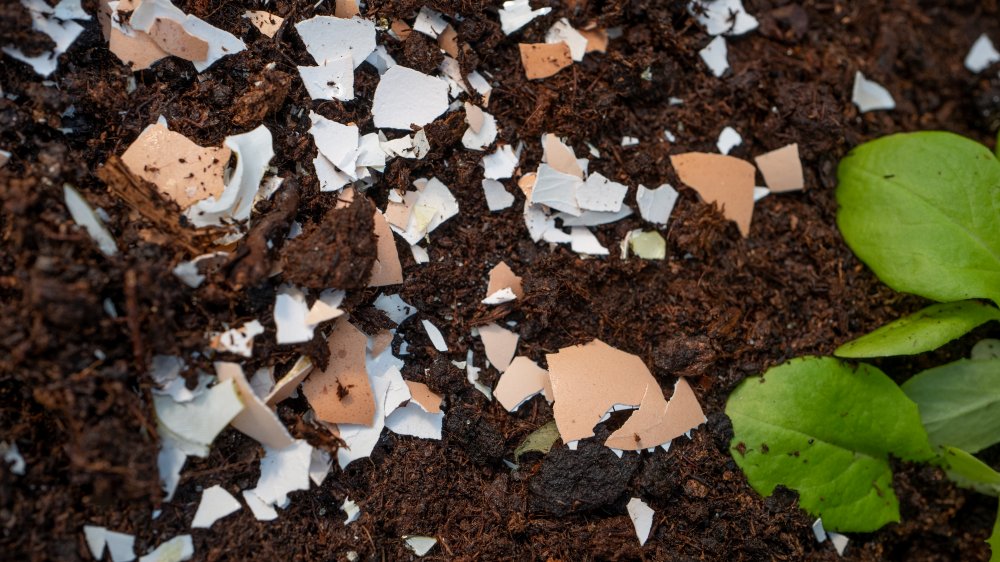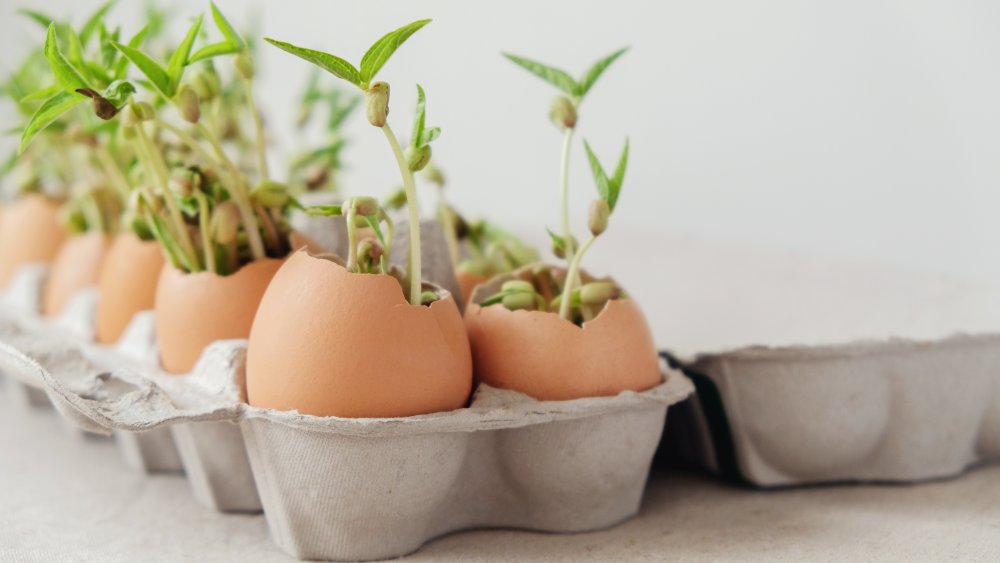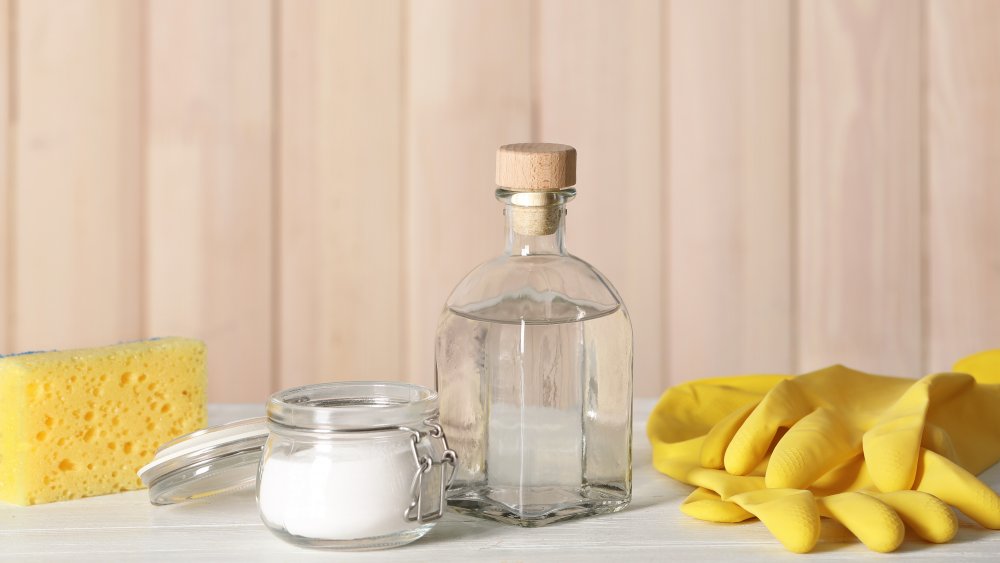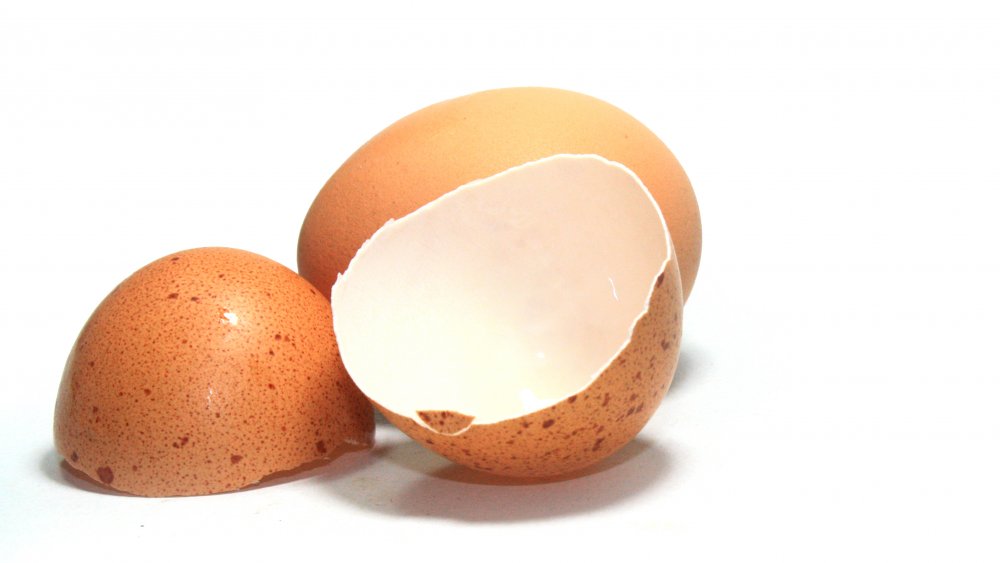The Real Reason You Shouldn't Throw Out Your Eggshells
The Washington State Recycling Association claims that in 2011 the United States threw more than 36 million tons of food waste into landfills. When these food remains break down, they contribute significantly to the production of methane, which is a powerful greenhouse gas that is known to be one of the causes of climate change. Using food scraps previously destined for the trash (like citrus rinds, sourdough starter discard, and vegetable ends) helps you reduce that waste and saves you money in the long run, leading to a happy planet and a fuller bank account.
When looking for ways to cut down on kitchen waste, there are likely many solutions that come to mind before using eggshells. After cracking eggs, throwing out the shells seems like the only possible conclusion. They're thin, brittle, and, as anyone who has ever unwittingly chomped down on an unexpected eggshell shard in an omelette can attest, not great to eat. However, eggshells can actually be incredibly useful in a number of ways around the home and garden.
Discourage and eliminate garden pests naturally with eggshells
DIY Everywhere recommends sprinkling coarsely ground eggshells in your garden to dissuade or eliminate any pests who are eating the plants. The site asserts that deer are incredibly sensitive to the scent of eggs, and will avoid gardens with eggshells in them. If you're having a problem with neighborhood cats using your garden as a litter box, eggshells will discourage them as well, since they find the broken shells uncomfortable to step on. Gardening Know How claims that ground eggshells also work in a way similar to diatomaceous earth for keeping out smaller insects that crawl along the ground, essentially creating your own chemical free insecticide. Adding them to your soil will make tiny cuts along the bodies of common garden pests like slugs, snails, and cutworms, which eventually kills them. To use eggshells in your garden as a pest deterrent, simply crush the shells with a rolling pin or coarsely grind them in a food processor and then sprinkle the broken fragments anywhere you have been having problems.
Eggshells boost the nutritional content of soil
Eggshells are good for your soil, too. Gardenista says adding crushed eggshells to your soil can boost the calcium content, which is crucial to building healthy, strong plant cell walls. They suggest you mix ground eggshells into the soil twice per year, once in the fall and once in the spring, as eggshells take a while to break down and allow the nutrients to be absorbed by the plants. Tomato plants especially love calcium, so be sure to use this trick if you are trying to grow them. Eggshells also are known to lower the pH content of overly acidic soils, and help aerate the ground. One Green Planet asserts that aerating your garden is very important, as the soil can become compacted over time, which prevents plant roots from getting the oxygen they need. Aeration helps the good garden bugs as well, as the worms and other insects that help naturally create a good nutritional balance in the soil for plants need air and water to survive.
You can grow seedlings in eggshells
You can use eggshells for a thrifty, environmentally-friendly container to grow plants from seed. Egg producers Pete and Gerry's Organic Eggs claim you can start just about any seed in an eggshell, but they particularly love this method for herbs. Using eggshells for seedlings comes with the added bonus of being able to plant the eggshell along with your young plant directly in the soil once it has sprouted leaves and is ready to be outside on its own. Eggshells are compostable and made almost entirely from calcium carbonate, so as they break down the shells will supply your new plants with the calcium and nitrogen essential to helping them develop. Just make sure to keep at least half of the eggshell unbroken to provide enough space for your seeds to grow. Southern Living calls this process an easy and cheap way to start a garden. The outlet praises how it allows you to closely monitor the amount of light and water each plant receives and to protect them from the elements and pests. Using eggshells to grow seedlings will save you time and money compared to purchasing already established plants from a garden center or using plastic starter trays.
Create an abrasive, eco-friendly cleaning solution with eggshells
According to Taste of Home, eggshells aren't only useful in the garden, but are also really great at cleaning up in the kitchen and bathroom. You can create your own non-toxic, all natural abrasive cleaner (similar to household cleaning product Ajax) with eggshells and baking soda. To create this mix, you will need to dry your shells out in the sun or in a low oven, and then grind the dry shells into a fine powder. Mix one cup of powdered eggshells — about a dozen eggs worth — with three cups of baking soda. When you are ready to clean, simply combine the powder mix with a little vinegar or water to create an abrasive paste that is safe to use on pots and pans, showers, and toilet bowls. Eggshells are great at removing coffee stains from your thermos, as well. Just crush some up and fill your thermos about a third of the way with the shells and hot water and shake. Within a few minutes, the stains inside should begin to dissipate.
Use an eggshell membrane as a Band-Aid
As weird as it may sound, an eggshell can be beneficial in the first aid department. How? If you happen to cut yourself in the kitchen (maybe on a sharp eggshell?), simply grab the membrane from the inside of the shell and use it as a natural Band-Aid. Grit says that if you wrap the membrane around the cut, it will harden and stop the blood from flowing. Aside from that, it's a natural bacteria barrier that also allows air to get to the wound.
Not convinced? NCBI doesn't leave any room for doubt. Their assessment clearly states: "Chicken-egg membrane dressing significantly improves healing of cutaneous wounds in the early stages of wound healing."
Now you not only have a use for the shells itself, but a separate use for the membranes should disaster strike. Who knew eggshells were so useful?
